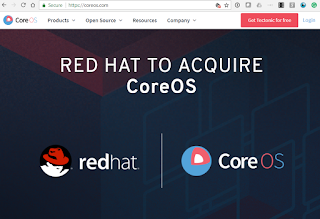Red Hat agreed to acquire CoreOS, a developer of Kubernetes and container-native solutions, for $250 million.

Red Hat said the deal furthers its vision of enabling customers to build any application and deploy them in any environment with the flexibility afforded by open source.
“The next era of technology is being driven by container-based applications that span multi- and hybrid cloud environments, including physical, virtual, private cloud and public cloud platforms. Kubernetes, containers and Linux are at the heart of this transformation, and, like Red Hat, CoreOS has been a leader in both the upstream open source communities that are fueling these innovations and its work to bring enterprise-grade Kubernetes to customers. We believe this acquisition cements Red Hat as a cornerstone of hybrid cloud and modern app deployments,” stated Paul Cormier, president, Products and Technologies, Red Hat.
- In May 2016, CoreOS received $28 million in Series B funding round led by GV (formerly Google Ventures). Intel Capital participated in the round, as well as existing investors Accel, Fuel Capital, Kleiner Perkins Caufield & Byers (KPCB), Y Combinator Continuity Fund and others, bringing the company’s funding to date to $48 million.












